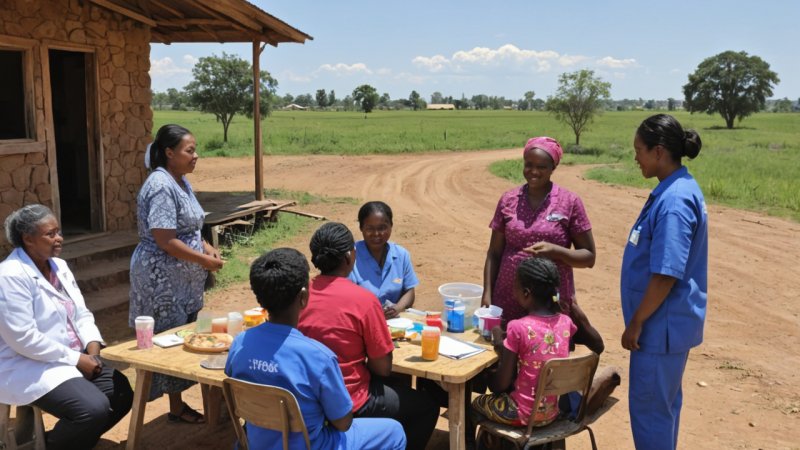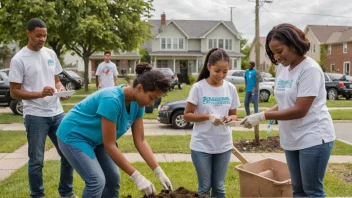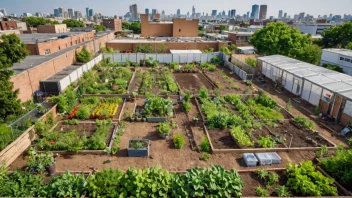In the intricate web of societal issues, poverty stands out as one of the most pressing challenges that humanity faces today. It is not merely a lack of financial resources; it encompasses inadequate access to basic needs such as food, clean water, education, and healthcare. Community health programs have emerged as vital interventions that not only address the immediate healthcare needs of underserved populations but also play a significant role in alleviating poverty. By improving health outcomes, these programs create a ripple effect that enhances economic stability and promotes social equity. This article delves into the multifaceted impact of community health programs on poverty levels, exploring their mechanisms, successes, and the ways individuals can contribute to these transformative initiatives.
Understanding the Link Between Health and Poverty
Poverty and health are inextricably linked, creating a cycle that is difficult to break. Poor health can lead to decreased productivity, increased medical expenses, and a higher likelihood of falling deeper into poverty. Conversely, poverty often results in limited access to healthcare, leading to untreated diseases and chronic health issues. According to the World Health Organization, individuals living in poverty are more susceptible to communicable diseases, malnutrition, and mental health disorders. This interdependence underscores the necessity of addressing health issues as a means of poverty alleviation.
Community Health Programs: A Lifeline for Vulnerable Populations
Community health programs are designed to provide accessible healthcare services to underserved populations, focusing on prevention, education, and treatment. These initiatives can take various forms, including mobile clinics, health education workshops, vaccination drives, and mental health support services. By bringing healthcare closer to those in need, these programs reduce barriers to access and empower communities to take charge of their health.
Preventive Care and Education
One of the core components of community health programs is preventive care. By educating individuals about hygiene, nutrition, and disease prevention, these initiatives can significantly reduce the incidence of preventable diseases. For example, programs that promote vaccination can prevent outbreaks of diseases such as measles and polio, which disproportionately affect impoverished communities. Furthermore, educating communities about reproductive health can lead to better family planning and maternal health outcomes, ultimately contributing to poverty reduction.
Economic Benefits of Improved Health
When communities experience improved health outcomes, the economic benefits can be profound. Healthier individuals are more productive and can contribute more effectively to the workforce. This productivity translates into increased income and economic stability, which helps lift families out of poverty. Additionally, reduced healthcare costs mean that families can allocate their limited resources to other essential needs such as education and housing.
Successful Case Studies
Numerous case studies illustrate the positive impact of community health programs on poverty alleviation. For instance, in Bangladesh, the BRAC organization has implemented a comprehensive community health program that includes trained community health workers who provide essential health services and education. This initiative has led to significant improvements in maternal and child health, resulting in decreased poverty levels in the regions served.
Similarly, in sub-Saharan Africa, the integration of health services into agricultural programs has proven effective. By addressing both health and food security, these programs empower communities to improve their overall wellbeing while also enhancing their economic prospects. The holistic approach taken by these programs exemplifies the importance of addressing multiple facets of poverty simultaneously.
How Individuals Can Get Involved
Individuals looking to make a difference in their communities can play an active role in supporting community health programs. Here are several ways to get involved:
- Volunteer: Many community health organizations rely on volunteers to help with outreach, education, and service delivery.
- Advocate: Raise awareness about the importance of community health programs and their impact on poverty alleviation in your local community.
- Participate in Health Fairs: Join local health fairs to promote health education and provide support to community members.
- Educate Yourself: Learn about health issues affecting your community and share that knowledge with others to foster a culture of health awareness.
Challenges Facing Community Health Programs
Despite their success, community health programs face numerous challenges that can hinder their effectiveness. Funding constraints, lack of trained personnel, and political instability can all impact the sustainability of these initiatives. Additionally, cultural barriers may prevent individuals from seeking care or participating in health education programs. Addressing these challenges requires a collaborative effort from governments, non-profits, and community members to create a supportive environment for health initiatives.
The Future of Community Health Programs
Looking ahead, the future of community health programs appears promising, especially as technology continues to advance. Telehealth services, for example, can expand access to healthcare, even in remote areas. Additionally, integrating mental health support into community health programs is becoming increasingly recognized as essential for overall wellbeing. By continuing to innovate and adapt to the needs of communities, these programs can further their impact on poverty alleviation.
Conclusion
Community health programs play a pivotal role in the fight against poverty by addressing the critical intersection between health and economic stability. By providing accessible healthcare and education, these programs empower individuals and communities to break the cycle of poverty. As we reflect on the success stories and challenges faced by these initiatives, it is clear that collective action is needed to ensure their sustainability and expansion. Individuals have a vital role to play in supporting these efforts, whether through volunteering, advocacy, or education. Together, we can contribute to a healthier, more equitable world where poverty is a thing of the past.






